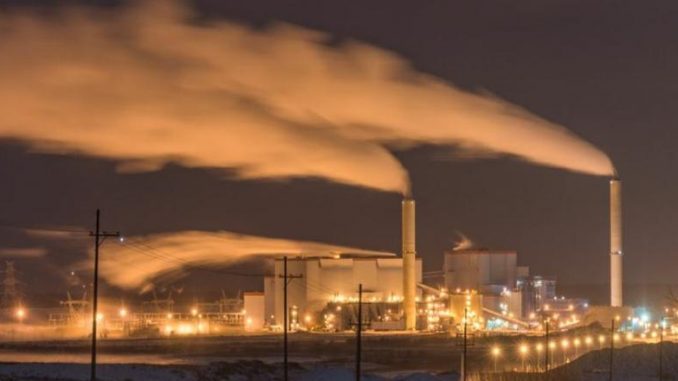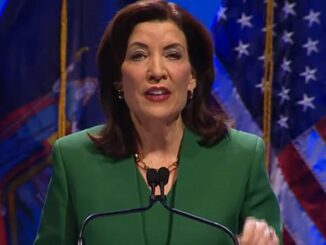
OTTAWA, Ontario, Canada, March 25, 2021 (ENS) – In a political win for Canada’s Prime Minister Justin Trudeau, the Supreme Court of Canada today ruled that the Liberal Government’s carbon tax law is constitutional because climate change is a threat to the entire country and demands a coordinated national approach.
“Climate change is real. It is caused by greenhouse gas emissions resulting from human activities, and it poses a grave threat to humanity’s future,” Chief Justice Richard Wagner wrote, on behalf of the majority.

“Parliament has jurisdiction to enact this law as a matter of national concern,” wrote the chief justice. Five of the other justices agreed, and three dissented for a 6-3 decision.
The Supreme Court ruled on the constitutionality of the 2018 Greenhouse Gas Pollution Pricing Act. This law sets a national framework for carbon pricing with minimum pricing standards for Canada’s 10 provinces and three territories to meet. If jurisdictions have not set their own standards, they must pay the federal “backstop” rate.
Seven of Canada’s 10 provinces and three territories now pay that backstop rate.
But three provinces – Alberta, Ontario and Saskatchewan – opposed the carbon tax, arguing that natural resources are in the provinces’ area of authority under the Constitution.
Chief Justice Wagner found that the Canadian government can act under the Constitution’s “peace, order and good government” clause, which gives the federal government authority to enact laws to deal with issues that concern the entire country.
If Canada’s Parliament was not permitted to address emissions in any way, Wagner wrote, “irreversible harm would be felt across the country,” and would be experienced the most in communities and regions most vulnerable to climate change.
Wagner wrote that a patchwork approach with some provinces placing a price on carbon emissions but others not doing so would hinder Canada’s collective fight against climate change. He mentioned a “broad consensus among international bodies” that carbon pricing is a “critical measure for the reduction of GHG emissions.”
While Ottawa’s legislation does intrude on provincial jurisdiction as set out by the Constitution Act, 1867, the threat of climate change “justifies the limited constitutional impact,” the chief justice wrote on behalf of the majority.

“The evidence clearly shows that establishing minimum national standards of GHG [greenhouse gas] price stringency to reduce GHG emissions is of concern for Canada as a whole. This matter is critical to our response to an existential threat to human life,” Wagner wrote. “As a result, it readily passes the threshold test and warrants consideration as a possible matter of national concern.”
Wagner reasoned that because emissions are “extraprovincial” by nature and “carbon leakage” the federal government can play a role in ensuring that each jurisdiction contributes to Canada’s effort as a whole.
“A failure to include one province in the scheme would jeopardize its success in the rest of Canada,” Wagner wrote. “What is more, any province’s refusal to implement a sufficiently stringent GHG pricing mechanism could undermine GHG pricing everywhere in Canada.”
As part of the Greenhouse Gas Pollution Pricing Act the provinces and territories must put a price on carbon emissions, but the law doesn’t dictate how they are to do that.
The backstop tax, which is $40 a metric tonne this year, is set to rise steeply over the next decade as the Canadian government strives to meet its climate commitments.
Federal Environment and Climate Change Minister Jonathan Wilkinson called the Supreme Court’s ruling “historic” at a news conference in Vancouver Thursday morning. He praised it as “a win for the millions of Canadians who believe we must build a prosperous economy that fights climate change.”
“The majority of economists will tell you that pricing pollution is the most economically efficient way to reduce emissions while concurrently driving innovation,” Wilkinson said.
The three losing premiers expressed a range of reactions to the Supreme Court’s decision. Alberta Premier Jason Kenney expressed disappointment.
Saskatchewan Premier Scott Moe said the court’s decision “does not change our core conviction that the federal carbon tax is bad environmental policy.” He said Saskatchewan will “forge our own path.”
He said the carbon tax “kills jobs” and “threatens the competitiveness of our industries.” Moe and other leaders have said the carbon backstop places an unfair financial burden on farmers, particularly those who use fossil fuels to dry grains.
Jeff Yurek, Ontario’s environment minister, said the province’s Conservative government “will continue to do everything we can to make life more affordable for families and businesses,” but it will press ahead with a “tough but fair plan” to hold large industrial emitters accountable for their pollution.
Yurek said today, “We’re going to move forward with our plan for the environment, which is reducing our emissions 30 percent or to 2005 levels.”
Copyright Environment News Service (ENS) 2021. All rights reserved.
© 2021, Environment News Service. All rights reserved. Content may be quoted only with proper attribution and a direct link to the original article. Full reproduction is prohibited.



